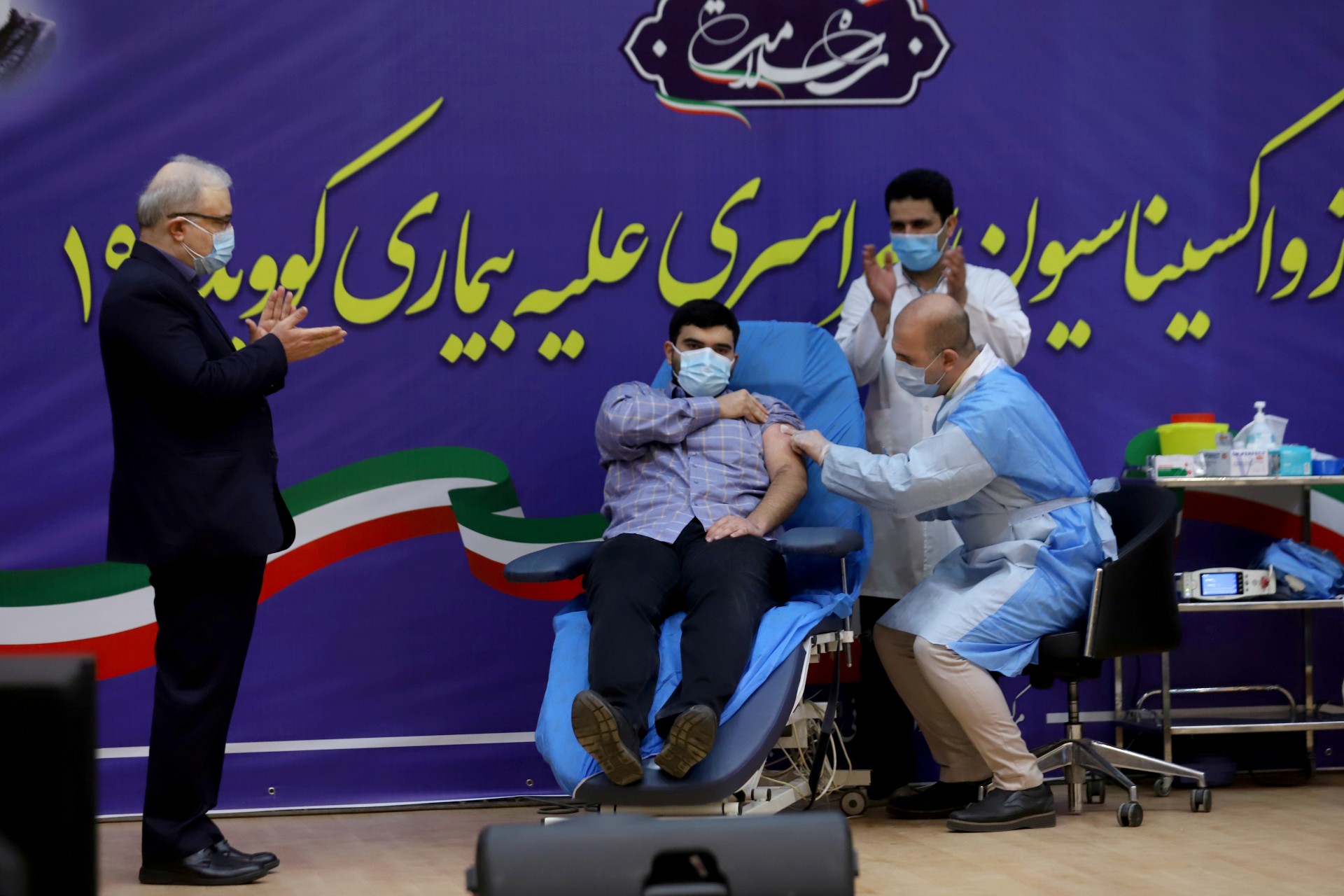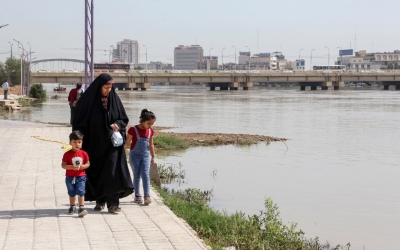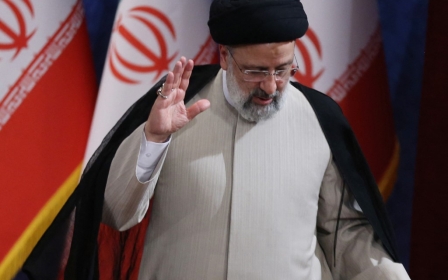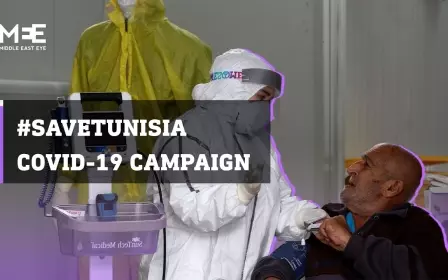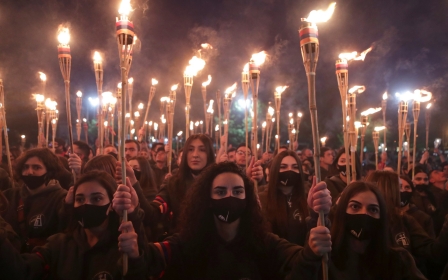Covid-19 vaccine: Iranians sick of waiting rush to Armenia for jabs
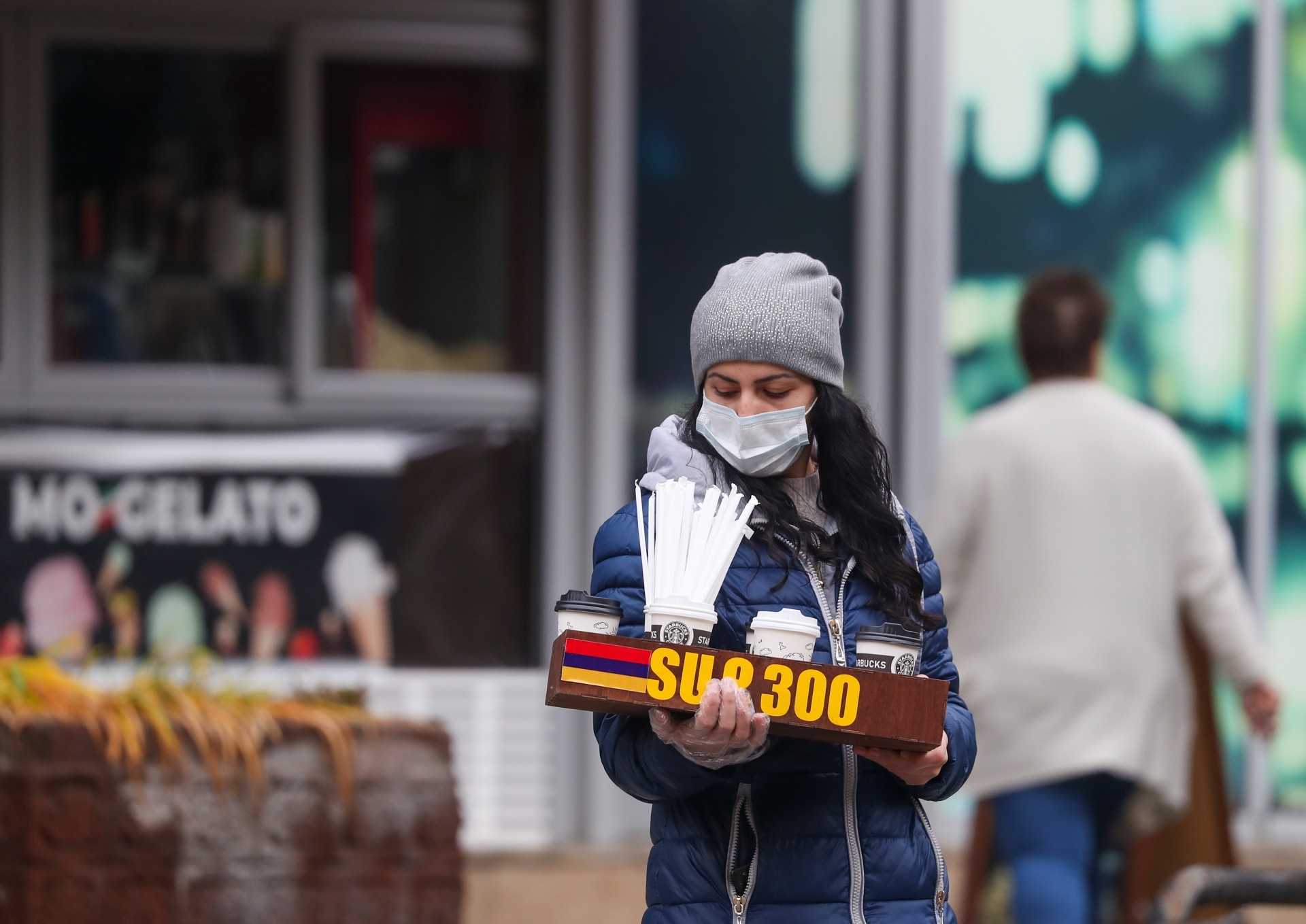
For a year and a half, travel agents in Iran have been struggling for business. Air travel, particularly, has been almost non-existent.
But today, Roya, who works in a Tehran travel agent, answers calls non-stop from people asking to fly to one place: Armenia.
Iran’s neighbour to the north has its charms, for sure, and has always been a destination for holidaymakers and Iranians of Armenian ethnicity. Now, though, Iranians are heading to Yerevan for the promise of vaccination against Covid-19.
'We were sick and tired of the uncertainty and the fear of contracting Covid-19, and also of the authorities’ vain promises. That’s why I went to Armenia'
- Behzad, 36
"The irony is that these days, when air travel has dropped under the coronavirus pandemic, we spend almost 70 percent of our time answering calls about tours to Armenia," Roya told Middle East Eye.
"Armenian hotels are very happy to see the Iranians are very keen, but the main problem is the shortage of flights, and there are almost no flights until the next month."
New MEE newsletter: Jerusalem Dispatch
Sign up to get the latest insights and analysis on Israel-Palestine, alongside Turkey Unpacked and other MEE newsletters
According to Iranian health officials, only 2 million of Iran’s 80 million population have received both doses of the vaccine so far. Almost 4.4 million people have received the first shot.
Iran refuses to accept any western-made vaccines from the World Health Organisation’s Covax programme, meaning Pfizer, Moderna and AstraZeneca jabs are not available. Supreme Leader Ali Khamenei described them as “totally untrustworthy”.
Instead, Iran relies on vaccines imported from China, Russia and Cuba, as well as some developed domestically.
Meanwhile, Armenia offers vaccination to visitors free of charge.
Behzad, 36, recently travelled to Armenia with his wife to get the vaccine.
"We were sick and tired of the uncertainty and the fear of contracting Covid-19, and also of the authorities’ vain promises. That’s why I went to Armenia together with my wife to get vaccinated."
"Our trip was very comfortable," the Tehran-based computer engineer added.
“Given that Iranians do not need a visa to travel to Armenia, we just booked a flight and hotel and went to Yerevan. There are centres established in the city’s public squares where we went to receive our vaccines."
According to those who have made the trip, an Armenian SIM card in your phone and a passport were all that was needed to get the AstraZeneca vaccines being doled out there, and no other documentation was required.
Spiralling costs
Not everyone is so lucky, however. Tickets to Armenia are now scarce, as more and more Iranians jump on the bandwagon.
Only Air Armenia flies direct between Yerevan and Tehran, while Qatar Airways and Russia’s Aeroflot offer round-trip flights with a charge of at least 300 euros ($354).
Air Armenia flies from Tehran to Yerevan seven times a week and from Tabriz in northwest Iran five times. But a shortage of flights and an increase in the number of passengers have also pushed up the prices.
Previously a four-day trip to Armenia, including flights and a three-star hotel, would cost those looking for a vaccine at least 8 million tomans (nearly $300). With seats on planes now a rarity, those prices have shot up by almost double.
There is another option: driving. And Iranian tour agents offer land travel, too.
For these packages, at least 3 million tomans (almost $130) can get you on a bus from Tehran to Yerevan, though it takes 17 hours.
Ali, 27, recently took the uncomfortable land route with his friends.
"We got on a bus in Tehran and were on the way for about 23 hours," he told MEE. "Although we were supposed to arrive there in 17 hours, the border checkpoints took too long and the journey was tedious."
That said, Ali believes it was worth the trouble. He has no idea when people his age will be offered the vaccine at home.
But with increasing demand, bus fares have risen and multiplied as well.
Arash, a 41-year-old English teacher, originally sought to book the trip for him and his family via a tour company, but quickly encountered problems.
"All the bus tickets are either sold out or sold at much higher prices," he said. “I decided to find and rent a bus for ourselves and share all the seats with our friends and acquaintances. However, it is also very difficult."
'Illogical'
As news of Iranian interest in traveling to Yerevan circulated, Iranian government officials have been forced to react. Iranian Deputy Health Minister Kianoush Jahanpour called people's attempts to travel to Armenia to receive the vaccine illogical.
Despite Jahanapour’s annoyance, Iran is still profiting from the trips to Armenia, and not only because its citizens are returning vaccinated.
The Iranian government earns at least 1 million tomans (almost $40) from every person making the trip, because they have to pay 400,000 tomans to leave Iran and 600,000 tomans to return.
Meanwhile, Yerevan is bringing in further restrictions.
On 7 July, Armenian Ambassador to Iran Artashes Tumanyan announced that from 15 July, foreigners can only receive the vaccine if they stay in the country for at least 10 days.
Those who have made the trip already are the lucky ones.
Middle East Eye delivers independent and unrivalled coverage and analysis of the Middle East, North Africa and beyond. To learn more about republishing this content and the associated fees, please fill out this form. More about MEE can be found here.


